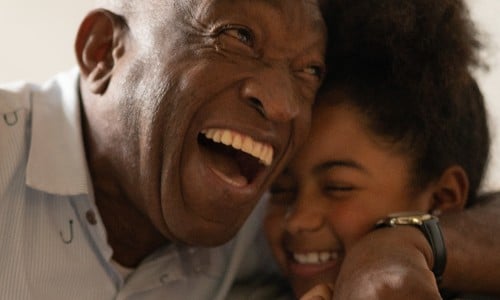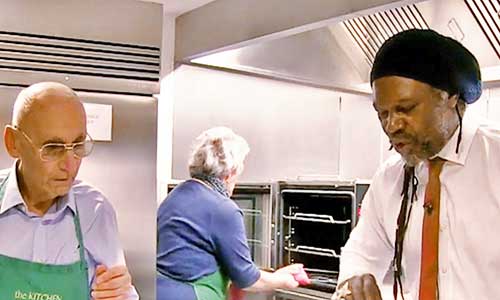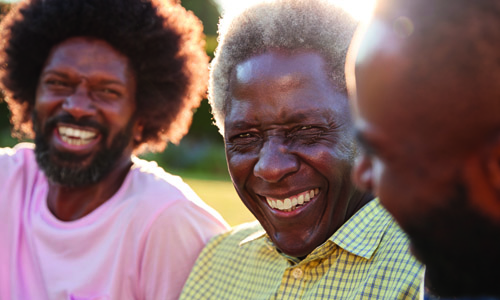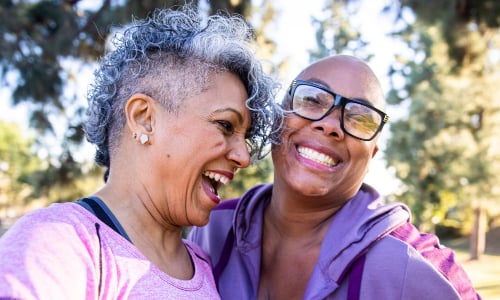Black History Month is an opportunity to reaffirm the importance of stories from Black older people, including the Windrush generation, to ensure respect is given to the past, and the right support is provided in the present and future.
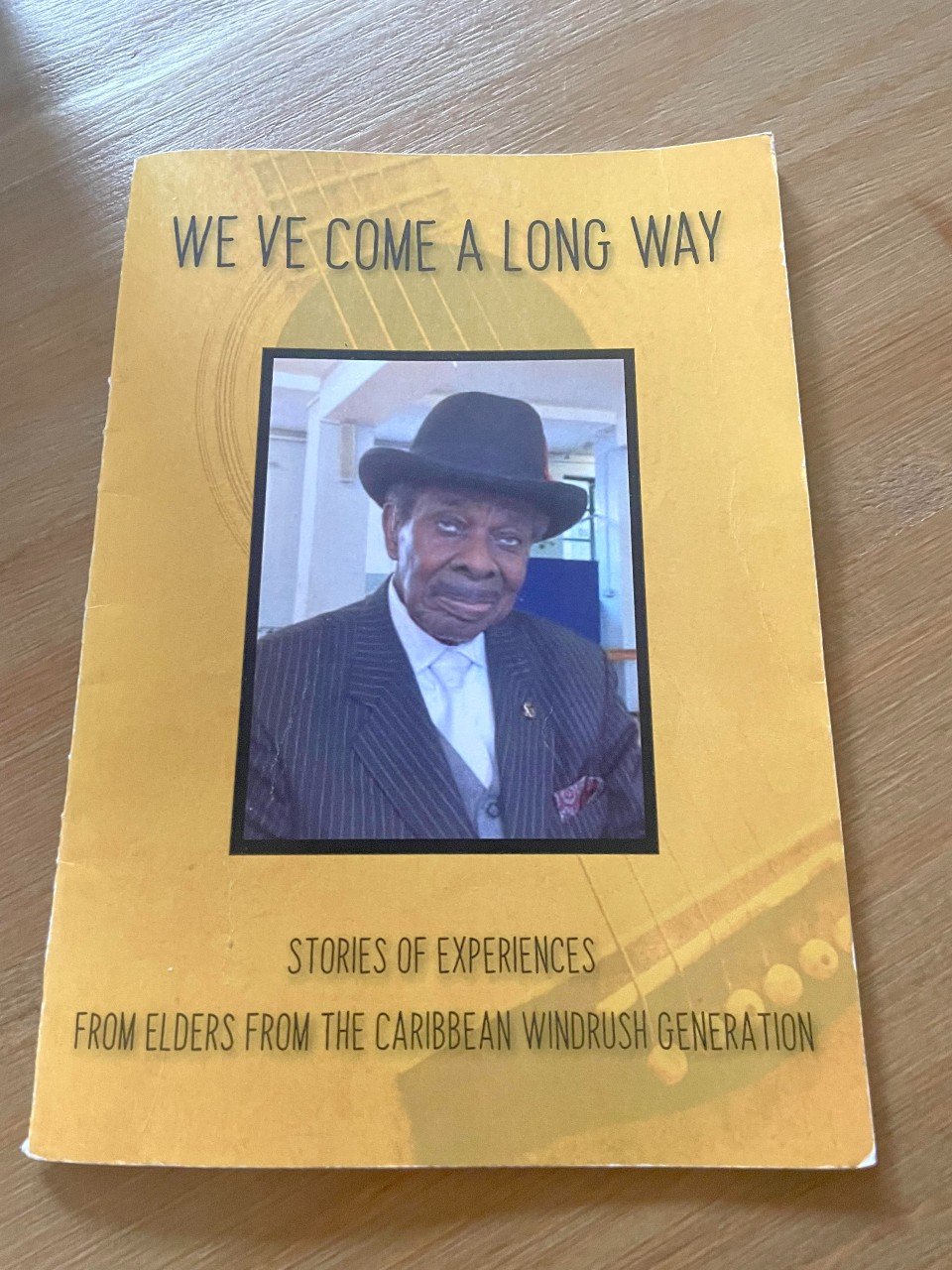 On a recent visit to Age UK Lewisham & Southwark, we were introduced to a book called ‘We’ve Come A Long Way’. It was an anthology created as part of a six-month creative writing project, with the aim of allowing older people from all backgrounds, but particularly those from Black and minoritised ethnic backgrounds, to share their personal histories. Through several sessions their testimonies were woven together and captured into stories and poems.
On a recent visit to Age UK Lewisham & Southwark, we were introduced to a book called ‘We’ve Come A Long Way’. It was an anthology created as part of a six-month creative writing project, with the aim of allowing older people from all backgrounds, but particularly those from Black and minoritised ethnic backgrounds, to share their personal histories. Through several sessions their testimonies were woven together and captured into stories and poems.
The book's cover features a picture of Mr Fairweather, an older Black man dressed in a pinstripe suit. His face peaceful beneath a bowler hat, he looks younger than his 92 years. Inside the book, Mr Fairweather describes his life, from a childhood spent in Jamaica, where his father was a farmer and his mother was a seamstress, to his arrival in England during the Second World War, where he trained as a Gunner in the RAF. He describes his experiences of discrimination as a scourge “[he] had to challenge whenever [he] could” and how he become the Advertising Manager of England’s first major Black newspaper, the West Indian Gazette. Mr Fairweather’s eventful life is all there on the page, recorded for posterity, so that his hugely valuable contributions to British society aren’t forgotten.
Stories from the past
Katrina Jinadu is the Healthy Living & Learning Service Manager at Age UK Lewisham & Southwark. She supports the Black older visitors to Age UK L&S in sharing their experiences. Katrina is perfectly placed to do so, having been raised on the stories of her grandmothers, both of whom came to the UK from Jamaica to provide for their families, leaving children at home. Between the two women, they worked as cleaners, nannies, and supervisors. “I learned from them the art of never taking no for an answer,” explains Katrina. “They couldn’t rest on their laurels because no one else was here. Their networks were in Jamaica, so they had to create new ones here.”
Their examples influenced Katrina to get involved with community work and continue to inspire her support of older people in her local area, many of whom are from the Caribbean and are part of the Windrush generation. Katrina uses words like “holistic” and “nuanced” to explain her team’s approach to assisting older people, particularly those who have migrated to this country, with the challenges you can see and the trauma you often can’t. “Imagine what it must be like to leave your family behind to come here?” says Katrina. When one of her grandmothers came to the UK, it was with the understanding that her two sons and daughter would join her later. Tragically, she received a letter telling her that her daughter had died.
We endured to make money to take care of our children.
Reaffirming importance
Some of the women we spoke to at Age UK Lewisham & Southwark started their families once they arrived in England, having to juggle the responsibilities of homelife during the day with gruelling manual work at night. “It was hard labour,” says Hope, 76, a regular visitor to Age UK Lewisham & Southwark who worked in a tin factory when she arrived aged 19. “We went through it for the benefit of our kids. We endured to make money to take care of our children. But we also had to care for our parents too, back home [in the Caribbean]. Caring for our parents and our children were the forces that drove us. We didn’t mind putting up with the rubbish because we wanted the best for them.”
The “rubbish” Hope refers to is the racism and discrimination she experienced – discrimination she suggests is less obvious today but more systemic. “It’s still there,” she says. “The other night, I was lying in my bed, thinking, ‘We are all part of the human race, with all creeds and colours the same, yet we live in a world where some people think they’re better than other people. It bothers me a lot. I’m a Christian. It’s my backbone and helps give me the ability to forgive. But I think all of this made us strong.”
Being strong doesn’t necessarily mean you feel appreciated, though. “We do a lot of work to highlight the contributions of Black older people,” explains Katrina. “A Black older woman will tell you, ‘I was just a cleaner’, and they weren’t just a cleaner; they’ve been a cleaner, a mother, and a carer for their parents. They have played a fundamental part in their community. And so often they have done all the above whilst being subjected to racism and discrimination. It’s important that we don’t undervalue their contributions. So, we’re working constantly to recognise and reaffirm their importance.”
If somebody is unwell and requires care, and you’re adding to their stresses by not understanding them as an individual, how can you really care for that person?
Cultural sensitivity
For Katrina (pictured below), the key to Age UK better supporting Black older people, locally and nationally, is by allowing Black voices to be heard, and acknowledging and appreciating cultural differences and tailoring services and support accordingly.
“ For Black older people, whether it’s women or men, it’s important to remember the cultural significance of everything from food to hair, to caring for your skin to understanding certain terminology,” explains Katrina. “If somebody is unwell and requires care, and you’re adding to their stresses by not understanding them as an individual, how can you really care for that person? How does being on the receiving end of not being understood feel? Someone with dementia may not be able to articulate those feelings, but those feelings of being misunderstood or neglected or rejected are there and can lead to a further deterioration in health.”
For Black older people, whether it’s women or men, it’s important to remember the cultural significance of everything from food to hair, to caring for your skin to understanding certain terminology,” explains Katrina. “If somebody is unwell and requires care, and you’re adding to their stresses by not understanding them as an individual, how can you really care for that person? How does being on the receiving end of not being understood feel? Someone with dementia may not be able to articulate those feelings, but those feelings of being misunderstood or neglected or rejected are there and can lead to a further deterioration in health.”
This lack of cultural sensitivity goes some way to explaining why there are inequalities in health. According to research from the Centre for Ageing Better, rates of poor health among Black Caribbean men and women are equivalent to those of White British men and women who are ten years older. Black Caribbean people are therefore 50% more likely to be in poor health than white British people of the same age and sex.
We want to hear more stories
Age UK works with storytellers, who share their stories with us to help the charity and our supporters better understand the issues affecting older people. But we need to hear more about the experiences of Black older people in this country – the lives they’ve lived and challenges they’ve faced, their expectations for later life, and the impediments they've encountered to seeking healthcare and provision. Without these accounts, we won't get the true picture of a section of society disproportionately affected by the issues facing older people.
Share your story with us
Are the experiences mentioned in this article similar to yours or those of an older relative? We want to hear from older people with a wide range of stories.



